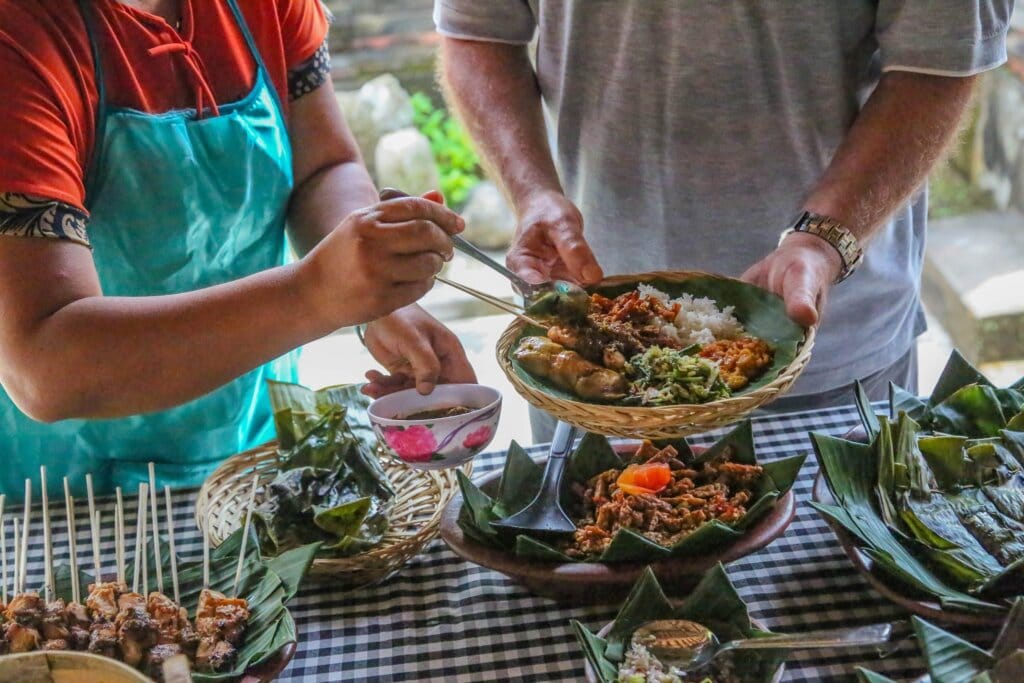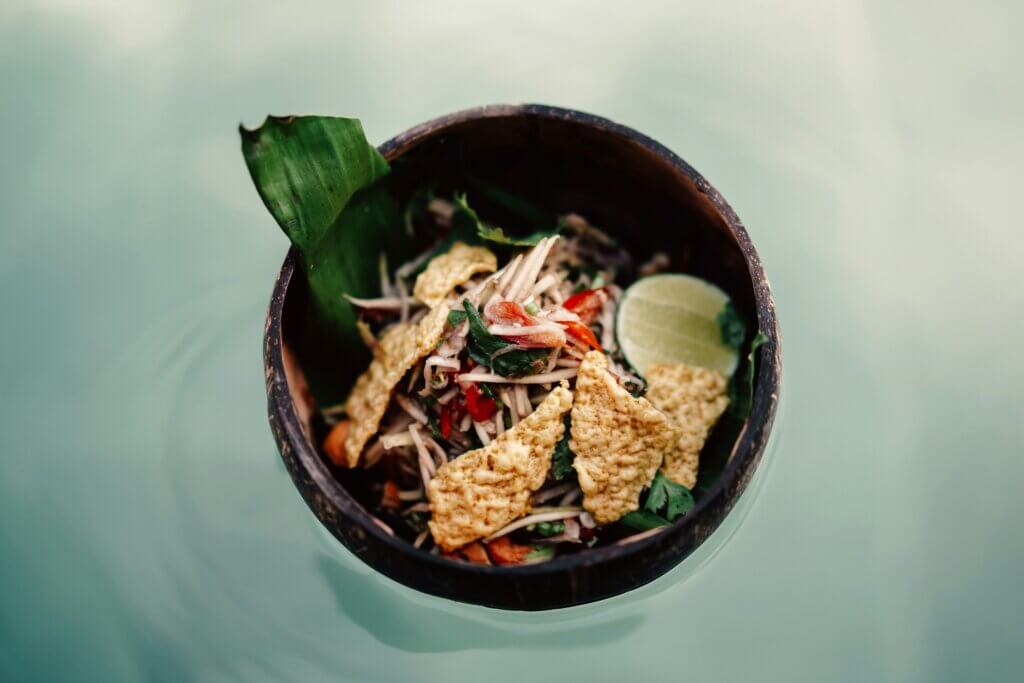Why You Should Take a Cooking Class on the Island of Gods
Bali is known for its breathtaking landscapes, vibrant traditions, and rich culinary heritage. Taking a cooking class on the Island of Gods is more than just learning how to cook—it’s an immersive experience that connects you with Balinese culture, ingredients, and cooking techniques. Whether you’re a food lover or just looking for a unique activity, a Bali cooking class is a must-try experience.
Dive into Balinese Culture
Balinese cuisine is deeply rooted in tradition and spirituality. Every dish tells a story, influenced by Hindu rituals, local customs, and centuries-old recipes. A cooking class allows you to experience this firsthand—learning not only how to cook but also the cultural significance behind each dish. From traditional offerings to ceremonial meals, you’ll gain a deeper appreciation for Bali’s rich heritage.
Discover Unique Ingredients
One of the most exciting aspects of Balinese cooking is its use of fresh, locally sourced ingredients. Many cooking classes start with a visit to a local market, where you’ll explore an array of exotic spices, fresh herbs, and tropical produce. You’ll discover ingredients like galangal, kaffir lime leaves, candlenuts, and the famous spice blend, “bumbu Bali,” which forms the foundation of many Balinese dishes.
Master Authentic Balinese Recipes
During the class, you’ll learn to prepare a variety of authentic Balinese dishes, such as Nasi Goreng (Balinese Fried Rice), Sate Lilit (Minced Seafood or Chicken Satay), Lawar (Mixed Vegetables with Coconut), and Pepes Ikan (Banana Leaf-Wrapped Fish). Guided by expert local chefs, you’ll be introduced to traditional cooking methods such as grinding spices with a mortar and pestle, steaming food in banana leaves, and grilling over coconut husk charcoal.
Hands-On Experience
Unlike just dining at a restaurant, a cooking class in Bali gives you a hands-on experience in preparing every component of the dish. You’ll chop, grind, stir, and cook alongside the chef, gaining practical skills that you can bring home. By the end of the session, you’ll have the confidence to recreate these delicious dishes in your own kitchen.
Picturesque Settings
Many cooking classes in Bali are set in breathtaking locations—whether it’s a lush organic farm, a traditional Balinese compound, or a scenic rice field. Cooking in such an idyllic environment enhances the entire experience, allowing you to connect with nature while you learn. Some classes even offer views of the ocean or mountains, making the experience truly unforgettable.
Sustainable and Ethical Practices
Balinese cooking is inherently sustainable, with a strong emphasis on locally sourced and seasonal ingredients. Many cooking classes promote eco-friendly practices, such as using organic produce, minimizing food waste, and supporting local farmers. Some classes are even held at permaculture farms, where you can learn about sustainable agriculture and ethical food production.
Conclusion
A Bali cooking class is more than just a culinary lesson—it’s an immersive cultural experience that allows you to explore the island’s rich traditions, flavors, and landscapes. Whether you’re a seasoned cook or a beginner, this hands-on activity will leave you with unforgettable memories and the skills to recreate authentic Balinese dishes at home. Don’t miss the chance to cook, taste, and experience Bali in a truly unique way!
More about this Activities
Program:
- Visiting Traditional Market
- Coconut Oil Making
- Explanation of Balinese Spices
- Cooking
- Lunch / Dinner
| Reguler Menu |
| Bergedel Jagung (Fried Corn with Spices) |
| Sate Ayam (Chicken Satay) |
| Pepes Tuna (Grilled Fish in Banana Leaf) |
| Sambal Kacang (Peanut Sauce) |
| Sambal Matah (Fresh Lemon Grass Sauce) |
| Gado-Gado (Mix Vegetables with Peanut Sauce) |
| Soup Ayam Labu Hijau (Chicken Soup with Green Pumpkin / Chayote) |
| Pisang Goreng (Fried Banan with Palm Sugar) |
| Vegetarian Menu |
| Bergedel Jagung (Fried Corn with Spices) |
| Sate Tempe / Jamur (Satay Tempe / Mushroom) |
| Pepes Tempe, Jamur (Steamed Tempe, Mushroom in Banana Leaf) |
| Sambal Kacang (Peanut Sauce) |
| Sambal Matah (Fresh Lemon Grass Sauce) |
| Gado-Gado (Mix Vegetables with Peanut Sauce) |
| Soup Jamur / Labu Hijau (Mushroom Soup with Green Pumpkin / Chayote) |
| Pisang Goreng (Fried Banan with Palm Sugar) |
| Special Menu – Check price here |
| Balinese Nasi Goreng (Balinese Fried Rice) |
| Sate Lilit (Minced Fish Mixed with Balinese Spices on Bambu Skewer) |
| Lawar (Mixed Vegetables with Chicken and Balinese Spices) |
| Tempe Lalah Manis (Sweet Fried Tempe / Bean Cake) |
| Sambal Matah (Fresh Lemon Grass Sauce) |
| Kripik Bayam / Jamur (Crispi Spinach or Mushroom) |
| Soup Pulung – Pulung (Balinese Chicken Meat Ball) |
| Kolak Pisang (Balinese Banana Compote) |


